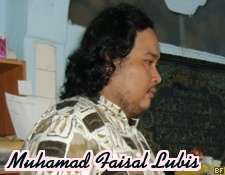OXFORD UTOMO
Assignment
Name : Aldi ferdiansyah
Reg num : 210700095
Level : Computer II
Date : Thursday may 28 2009
------------------------------------
Halloween falls on October 31st each year in North America and other parts of the world. What do you know about Halloween? Do you celebrate it in your country? Here is a littlehistory about it.
Like many other holidays, Halloween has evolved and changed throughout history. Ocer 2,000 years ago people called the Celts lived in what is now Ireland, the UK, and parts of Nor them France. November 1 was their New Year's day. They believed that the night before the New Year (October 31) wa time when the living and the dead camte together.
More tham thousand years ago the Christian church named November 1 all Sints Day (also called All Hallows). This was a special holy day to honor the saints and other people who died for their religion. The night before All Hallows was called Hallows Eve. Later the name wa changed to Halloween.
Like the Celts, the Europeans of that time also believed that the spirits of the dead would visit the earth of Halloween. They thought if they dressed like that, the spirits would think they were also dead and not harm them.
The tradition of Halloween was carried to America by the immigrating Europeans. Some of the traditions changed a little, though. For example, on Halloween in Europe some people would carry lanerns made from turnips. In America, pumpkins were more common. So people began putting candies inside them and using then as lanterns. That is why you see Jack'o lanters today.
These days Halloween is not usually considered a religious holiday. It is primarily a fun day for. children dress up in costumes like people did a thousand years ago. Bt instead of worrying about evil spirits, they go from house. They knock on doors and say "trick or treat". The owner of each houxe gives candy or something special to each trick or trater
Assignment
Name : Aldi ferdiansyah
Reg num : 210700095
Level : Computer II
Date : Thursday may 28 2009
------------------------------------
Halloween falls on October 31st each year in North America and other parts of the world. What do you know about Halloween? Do you celebrate it in your country? Here is a littlehistory about it.
Like many other holidays, Halloween has evolved and changed throughout history. Ocer 2,000 years ago people called the Celts lived in what is now Ireland, the UK, and parts of Nor them France. November 1 was their New Year's day. They believed that the night before the New Year (October 31) wa time when the living and the dead camte together.
More tham thousand years ago the Christian church named November 1 all Sints Day (also called All Hallows). This was a special holy day to honor the saints and other people who died for their religion. The night before All Hallows was called Hallows Eve. Later the name wa changed to Halloween.
Like the Celts, the Europeans of that time also believed that the spirits of the dead would visit the earth of Halloween. They thought if they dressed like that, the spirits would think they were also dead and not harm them.
The tradition of Halloween was carried to America by the immigrating Europeans. Some of the traditions changed a little, though. For example, on Halloween in Europe some people would carry lanerns made from turnips. In America, pumpkins were more common. So people began putting candies inside them and using then as lanterns. That is why you see Jack'o lanters today.
These days Halloween is not usually considered a religious holiday. It is primarily a fun day for. children dress up in costumes like people did a thousand years ago. Bt instead of worrying about evil spirits, they go from house. They knock on doors and say "trick or treat". The owner of each houxe gives candy or something special to each trick or trater

.jpg)











